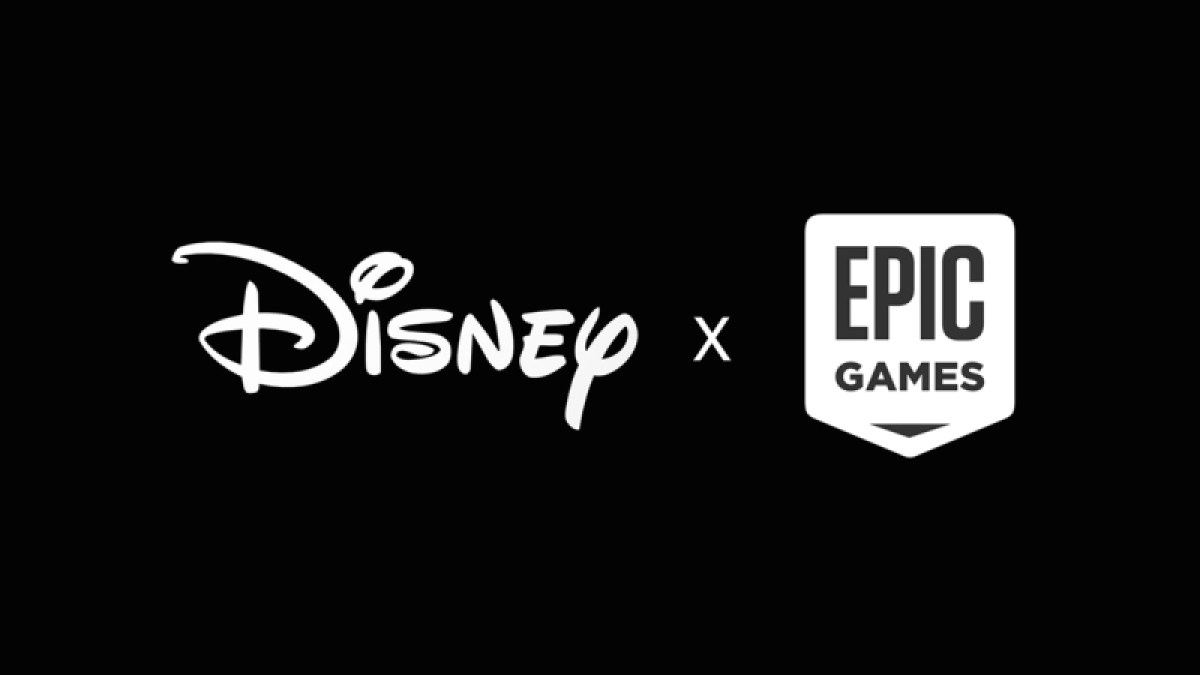When Disney shut down its metaverse division on March 28, 2023, the end of the 50-person division was interpreted as doom for the metaverse, the over-hyped universe of virtual worlds that are all interconnected, like in novels such as Snow Crash and Ready Player One.
By May 8, Business Insider ran a story with the headline, “RIP Metaverse,” where the memorable line was “the metaverse is dead.” It turns out that this particular interpretation of a business trend gone sideways was wrong, though I wouldn’t say the metaverse is out of the woods yet.
This week, Disney gave the metaverse one of its biggest endorsements — investing $1.5 billion in Epic Games to make a Disney connected and open universe. But he didn’t use the word “metaverse” (probably best defined by Matthew Ball) in describing the effort, as the word has become so unfashionable.
Still, it made me feel hopeful, as I’m a big fan of sci-fi and the original inspirations behind the metaverse. I want to see it happen, and I find it admirable that Meta CEO Mark Zuckerberg — who started the metaverse craze when he changed Facebook’s name to Meta in October 2021 — is willing to lose $4.5 billion a quarter to invest in making the metaverse happen. I think we just have to see that this is a very long game. Others who want things to happen on a faster timetable see it all as pure insanity, and some of them have pointed to Disney’s retreat from the metaverse in 2023 as evidence.
GB Event
GamesBeat Summit Call for Speakers
We’re thrilled to open our call for speakers to our flagship event, GamesBeat Summit 2024 hosted in Los Angeles, where we will explore the theme of “Resilience and Adaption”.
On Wednesday, Disney CEO Bob Iger offered a different reason why his company, which was in a major restructuring at the time, changed its strategy. And it was not so different from his gaming strategy.

In 2013, after buying Lucasfilm for $4 billion, Iger shut down the game business, LucasArts, and then got Electronic Arts and later other companies to make Star Wars games. Then in 2016, Iger decided to shut down Disney’s game publishing business, ending development on big efforts like Disney Infinity and closing internal game development in favor of external partners.
Soon enough, Disney executives were licensing properties to others to make. And Disney started scoring hits like Insomniac Games’ Marvel’s Spider-Man series, published by Sony under license from Disney’s Marvel division.
One analyst asked about the different iterations of video game strategy that Disney has seen over his tenure and why this new round with Epic Games is the right move. After all, it seemed like Disney has gone through cycles in games, and maybe it’s on a new cycle for the metaverse.

“You’re right, we’ve tried our hand at video games a number of different directions,” Iger said to the analyst. “And actually, the one that ended up being the most successful for us was the license. And in fact, we’ve licensed nine billion-dollar franchises, including the Spider-Man franchise, which is the most successful video game.”
Iger retired and then he came back. When he did, he sat down with executives Josh D’Amaro and Sean Shoptaw, who showed him data on demographic trends. He saw how much time young folks were playing video games, and Iger concluded “we have to be there.”
But this time, he would go the licensing route and enlist Epic Games CEO Tim Sweeney, whom he had met in 2017 as Epic went through the Disney Accelerator program. They discussed creating a “gigantic Disney World” with Fortnite completely interconnected.
“We knew through our relationship with Fortnite that there was already success, with some of our characters and franchises were expressed and showed up in Fortnite,” he said.
The world would be one where “people could create their own games, could watch — you could imagine the creation of short form videos — or maybe we may even use the platform to actually distribute some of our content,” Iger said.
He said that people that could interact with one another and ultimately some form of shopping, as well and other forms of creation.
“Obviously, there’ll be some there the opportunities to buy digital goods for native at some point — physical goods,” Iger said. “And I just think that given the demographic trends, and given the success of Fortnite — and by the way, they are experiencing a really a great year of both customer satisfaction and growth as they return to some of their roots.”

Iger said Disney can take our IP from our movies and our television and have them expressed in our parks. And he said this is also a great way to do it in games.
“It’s a way to have skin in the game with them with the investment of $1.5 billion to strengthen a partnership. Because we have skin in the game, but also build a world where we’re actually not creating too much risk for the company,” he said. “So as we said this is the best of all worlds in many respects, from a business venture perspective, and certainly great for consumers who love to interact with our characters already in video game format.”
To me, this was the biggest endorsement of the metaverse since Zuckerberg’s announcement. Perhaps the metaverse isn’t as dead as some thought? We’ve seen Snow Crash author Neal Stephenson step forward (partly in an attempt to counter Zuckerberg with a more sincere effort at openness) with Lamina1.
And Nvidia has sparked huge interest in the “industrial metaverse” and “digital twins” on the enterprise side with its Omniverse simulation technology. Companies like Siemens are running with the digital twin concept, where you simulate a factory virtually to get the bugs out before building it in real life. I’m going to moderate another panel on the Omniverse at the Nvidia GTC event on March 20 in San Jose, California.
Ready Player One?

Ernest Cline stepped in this January in an alliance with Futureverse to bring to life the world of Ready Player One, which has been a bigger success with the Steven Spielberg movie than Stephenson’s book. Like Stevenson and Sweeney, Cline is an advocate for the open metaverse.
But Sweeney clearly realized this week that working with something like Disney’s walled garden universe is a necessity to reach the masses, and that the best practical idea is to make that walled garden connect to the open metaverse in an open and fair way, much like websites coexist with the open internet.
Strauss Zelnick, CEO of Take-Two Interactive, said in an analyst call this week that he “wouldn’t bet against our friends at Disney and Epic” on the metaverse. And in his earnings call, Electronic Arts CEO Andrew Wilson talked about the opportunity for the creation of a “sports metaverse” where people could pursue their sports passions in all sorts of ways, starting with EA Sports games.
Last week Xsolla CEO Shurick Agapitov added to the library of books on the metaverse with his own title, Once Upon Tomorrow. And Weili Dai, who became a billionaire in the chip industry, has been investing in the metaverse with her Meetkai company, which makes web-friendly virtual places for brands.
Even Apple is in the game with the Apple Vision Pro. And it realizes that bringing the price of its headset down from $3,500 to something affordable is a very long game. But Tim Cook is among those who cannot bring himself to utter the word “metaverse.”

It’s enough to make you think the metaverse is making a comeback. I do think that somebody will succeed over time — and perhaps a very long time.
But many of these folks are avoiding the metaverse as if it were the plague, as they’re not quite sure if the word has been poisoned in the minds of consumers, much like blockchain has become a dirty word to mainstream Westerners because of all of the crypto scams.
Others argue that metaverse don’t retain people for very long; rather, it’s games that do that. We saw this in a conversation with Walmart’s Tom Kang, who is investing virtual store efforts directly into games, rather than building separate metaverses. On this logic, we should all be investing heavily in games — think Fortnite, Roblox and Minecraft — rather than the metaverse. I don’t have a quarrel with that.
I realize many people just don’t like the metaverse word because it means someone is going to head in the wrong direction and fail and wreck a lot of things. It will result in more scams and they will blame those who participate in the hype. I’ll acknowledge that.
These are good reasons to avoid the hot trends. And it does seem sometimes like the AI craze is murdering Web3 and the metaverse all at once.
But even though I’ve lived in Silicon Valley since 1994, I’ve never been one for crazy hype trends or quick trend deaths. For sure, I write about them a lot. But I’m not surprised when the hype dies down, we enter a period of disillusionment, and then the trend picks up again at a slower but inexorable pace. And rather than kill off the old trend, new trends like AI can actually accelerate things like the metaverse.
So often, I see the industry swarm into a new trend, then I see the chaff burn off in a down cycle or two, and then I see real companies — like Google coming late to the party with its search engine — emerge unexpectedly in the end with a high-quality solution that makes the dream come true.
I do hope that we come around to embracing the word “metaverse” again, when it deserves it. Because it really isn’t a bad thing to make some science fiction come true in real life.
Perhaps the thing I like most about a big hairy audacious goal (BHAG, as T.J. Rodgers used to say) like the metaverse is that all this startup stuff — all this crazy innovation — isn’t just about spinning our wheels and making quick bucks. I’d like to think it’s all heading toward some kind of progress for humanity, and we will get to a real destination one day.
We’re going to address some of these topics at our GamesBeat Summit 2024 event in Los Angeles on May 20-21. Hope to see you there.
VentureBeat’s mission is to be a digital town square for technical decision-makers to gain knowledge about transformative enterprise technology and transact. Discover our Briefings.

